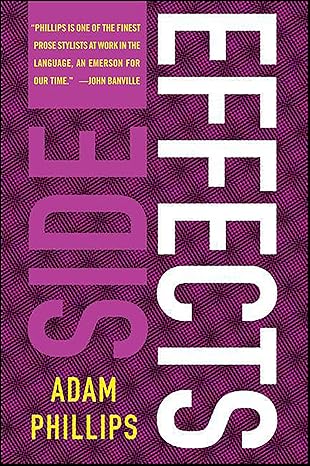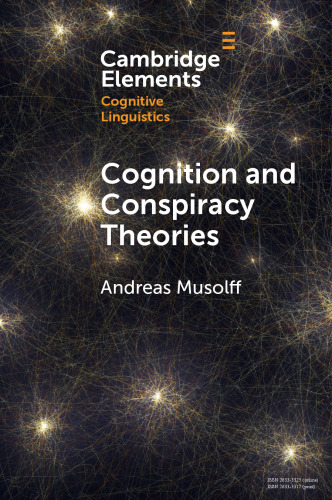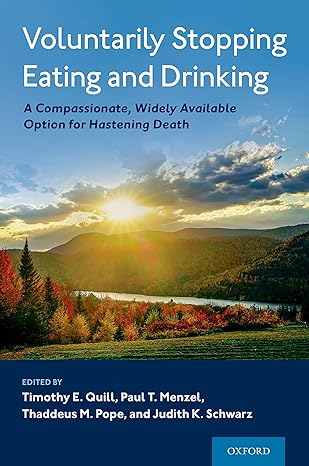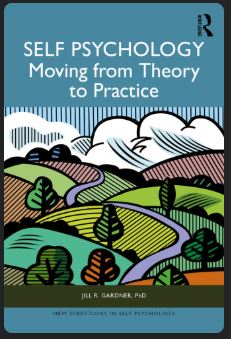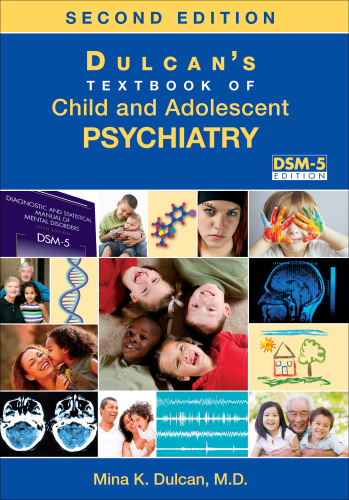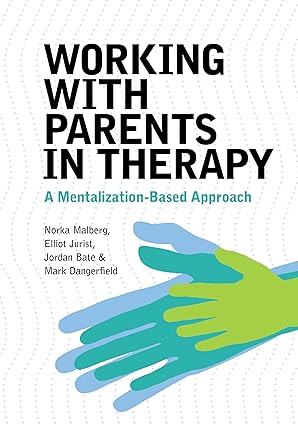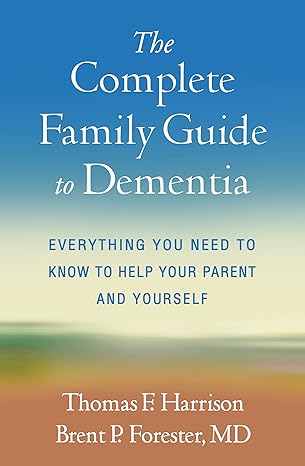This new edition provides a state-of-the-art introduction to psychology that merges the rigor of science with a broad human perspective. All the Myers’ hallmarks are here—the vivid presentation, intense attention to detail and
Do you want your students to engage with and retain psychology's key principles, and to work toward becoming better students and better people in the process? Best-selling Exploring Psychology offers creative ways to help make it happen. The new edition of Exploring Psychology offers outstanding currency on the research, practice, and teaching of psychology. Myers and DeWall inspire students with fascinating findings and applications, effective new study tools and technologies, and a compassionate and compelling storytelling voice. Their presentation is based on the same guiding principles that made David Myers the world's bestselling introductory psychology author. Facilitate learning by teaching critical thinking and helping students at every step. Present psychology as a science, emphasizing the process of inquiry and putting facts in the service of concepts. Make sure students come away with an appreciation of psychology's big ideas, and with a deeper respect for humanity--what drives us, distinguishes us, unifies us.
چکیده فارسی
این نسخه جدید مقدمه ای پیشرفته برای روانشناسی ارائه می دهد که دقت علم را با دیدگاه گسترده انسانی ادغام می کند. همه ویژگیهای مایرز اینجا هستند - ارائه واضح، توجه شدید به جزئیات و
آیا میخواهید دانشآموزانتان با اصول کلیدی روانشناسی درگیر شوند و آنها را حفظ کنند، و برای تبدیل شدن به دانشجویان بهتر و افراد بهتر در این فرآیند تلاش کنند؟ پرفروش ترین روش کاوش در روانشناسی راه های خلاقانه ای را برای کمک به تحقق آن ارائه می دهد. نسخه جدید Exploring Psychology ارزهای برجسته ای را در زمینه تحقیق، تمرین و آموزش روانشناسی ارائه می دهد. Myers و DeWall با یافتهها و برنامههای جذاب، ابزارها و فنآوریهای مؤثر مطالعه جدید، و صدای دلسوز و قانعکننده داستان سرایی، دانشآموزان را الهام میبخشند. ارائه آنها بر اساس همان اصول راهنما است که دیوید مایرز را به پرفروش ترین نویسنده روانشناسی مقدماتی در جهان تبدیل کرد. با آموزش تفکر انتقادی و کمک به دانش آموزان در هر مرحله، یادگیری را تسهیل کنید. روانشناسی را به عنوان یک علم با تأکید بر فرآیند تحقیق و قرار دادن حقایق در خدمت مفاهیم مطرح کنید. مطمئن شوید که دانشآموزان با قدردانی از ایدههای بزرگ روانشناسی، و با احترام عمیقتر به انسانیت - آنچه ما را به حرکت در میآورد، ما را متمایز میکند، ما را متحد میکند.
ادامه ...
بستن ...
Ebook details:
عنوان: Exploring Psychology (9781319104191) David G. Myers, C. Nathan DeWall
نویسنده: Books
ناشر: Worth Publishers; Eleventh edition (October 19, 2018)
زبان: English
شابک: 1319104193, 978-1319104191
حجم: 247 Mb
فرمت: Epub
ادامه ...
بستن ...
About this Book
Cover Page
Inside Front Cover
Title Page
Copyright Page
Dedication Page
About the Author
Brief Contents
Contents
Instructor Preface
In Appreciation
Student Preface
Chapter 1 Thinking Critically With Psychological Science
The History and Scope of Psychology
Psychology is a science
Critical thinking
Thinking Critically About The Scientific Attitude
Psychological science is born
Psychological science matures
Contemporary psychology
Review: The History and Scope of Psychology
Research Strategies: How Psychologists Ask and Answer Questions
The need for psychological science
Psychological science in a post-truth world
The scientific method
Thinking Critically About Correlation and Causation
Psychology’s research ethics
Use psychology to become a stronger person—and a better student
Review: Research Strategies: How Psychologists Ask and Answer Questions
Chapter 2 The Biology of Behavior
Neural and Hormonal Systems
Biology, behavior, and mind
The power of plasticity
Neural communication
The nervous system
The endocrine system
Review: Neural and Hormonal Systems
Tools of Discovery, Older Brain Structures, and the Limbic System
The tools of discovery: having our head examined
Older brain structures
The limbic system
Review: Tools of Discovery, Older Brain Structures, and the Limbic System
The Cerebral Cortex
Structure of the cortex
Functions of the cortex
Thinking Critically About Using More Than 10 Percent of Our Brain
Responses to damage
The divided brain
Review: The Cerebral Cortex
Genetics, Evolutionary Psychology, and Behavior
Behavior genetics: predicting individual differences
Evolutionary psychology: understanding human nature
Review: Genetics, Evolutionary Psychology, and Behavior
Chapter 3 Consciousness and the Two-Track Mind
Consciousness: Some Basic Concepts
Defining consciousness
Cognitive neuroscience
Selective attention
Dual processing: the two-track mind
Review: Consciousness: Some Basic Concepts
Sleep and Dreams
Biological rhythms and sleep
Why do we sleep?
Sleep deprivation and sleep disorders
Dreams
Review: Sleep and Dreams
Drugs and Consciousness
Tolerance and addiction in substance use disorders
Thinking Critically About Tolerance and Addiction
Types of psychoactive drugs
Influences on drug use
Review: Drugs and Consciousness
Chapter 4 Developing Through the Life Span
Developmental Issues, Prenatal Development, and the Newborn
Developmental psychology’s major issues
Prenatal development and the newborn
Review: Developmental Issues, Prenatal Development, and the Newborn
Infancy and Childhood
Physical development
Cognitive development
Social development
Thinking Critically About Parenting Styles
Review: Infancy and Childhood
Adolescence
Physical development
Cognitive development
Social development
Emerging adulthood
Review: Adolescence
Adulthood
Physical development
Cognitive development
Social development
Review: Adulthood
Chapter 5 Sex, Gender, and Sexuality
Gender Development
How Are We Alike? How Do We Differ?
Thinking Critically About Gender Bias in the Workplace
The Nature of Gender: Our Biological Sex
The Nurture of Gender: Our Culture and Experiences
Thinking Critically About Sexual Aggression
Review: Gender Development
Human Sexuality
The Physiology of Sex
The Psychology of Sex
Sexual Orientation
An Evolutionary Explanation of Human Sexuality
Sex and Human Relationships
Reflections on the Nature and Nurture of Sex, Gender, and Sexuality
Review: Human Sexuality
Chapter 6 Sensation and Perception
Basic Concepts of Sensation and Perception
Processing Sensations and Perceptions
Transduction
Thresholds
Thinking Critically About Subliminal Sensation and Subliminal Persuasion
Sensory Adaptation
Perceptual Set
Context, Motivation, and Emotion
Review: Basic Concepts of Sensation and Perception
Vision: Sensory and Perceptual Processing
Light Energy and Eye Structures
Information Processing in the Eye and Brain
Perceptual Organization
Perceptual Interpretation
Review: Vision: Sensory and Perceptual Processing
The Nonvisual Senses
Hearing
The Other Senses
Sensory Interaction
Esp—Perception without Sensation?
Review: The Nonvisual Senses
Chapter 7 Learning
Basic Learning Concepts and Classical Conditioning
How do we Learn?
Classical Conditioning
Review: Basic Learning Concepts and Classical Conditioning
Operant Conditioning
Skinner’s Experiments
Skinner’s Legacy
Contrasting Classical and Operant Conditioning
Review: Operant Conditioning
Biology, Cognition, and Learning
Biological Constraints on Conditioning
Cognition’s Influence on Conditioning
Learning by Observation
Thinking Critically About The Effects of Viewing Media Violence
Review: Biology, Cognition, and Learning
Chapter 8 Memory
Studying and Encoding Memories
Studying Memory
Encoding Memories
Review: Studying and Encoding Memories
Storing and Retrieving Memories
Memory Storage
Memory Retrieval
Review: Storing and Retrieving Memories
Forgetting, Memory Construction, and Improving Memory
Forgetting
Memory Construction Errors
Thinking Critically About Can Memories of Childhood Sexual Abuse Be Repressed and Then Recovered?
Improving Memory
Review: Forgetting, Memory Construction, and Improving Memory
Chapter 9 Thinking, Language, and Intelligence
Thinking
Concepts
Problem Solving: Strategies and Obstacles
Forming Good (and Bad) Decisions and Judgments
Thinking Critically About The Fear Factor
Thinking Creatively
Do Other Species Share Our Cognitive Skills?
Review: Thinking
Language and Thought
Language Structure
Language Acquisition and Development
The Brain and Language
Do Other Species Have Language?
Thinking and Language
Review: Language and Thought
Intelligence and Its Assessment
What Is Intelligence?
Assessing Intelligence
Intelligence Across the Life Span
Thinking Critically About Cross-Sectional and Longitudinal Studies
Review: Intelligence and Its Assessment
Genetic and Environmental Influences on Intelligence
Heredity and Intelligence
Environment and Intelligence
Gene-environment Interactions
Group Differences in Intelligence Test Scores
the Question of Bias
Review: Genetic and Environmental Influences on Intelligence
Chapter 10 Motivation and Emotion
Basic Motivational Concepts, Affiliation, and Achievement
Motivational Concepts
The Need to Belong
Achievement Motivation
Review: Basic Motivational Concepts, Affiliation, and Achievement
Hunger
The Physiology of Hunger
The Psychology of Hunger
Thinking Critically About The Challenges of Obesity and Weight Control
Review: Hunger
Theories and Physiology of Emotion
Emotion: Arousal, Behavior, and Cognition
Embodied Emotion
Thinking Critically About Lie Detection
Review: Theories and Physiology of Emotion
Expressing and Experiencing Emotion
Detecting Emotion in Others
Gender, Emotion, and Nonverbal Behavior
Culture and Emotion
The Effects of Facial Expressions
Review: Expressing and Experiencing Emotion
Chapter 11 Stress, Health, and Human Flourishing
Stress and Illness
Stress: Some Basic Concepts
Stress and Vulnerability to Disease
Thinking Critically About Stress and Health
Review: Stress and Illness
Health and Happiness
Coping With Stress
Reducing Stress
Happiness
Review: Health and Happiness
Chapter 12 Social Psychology
Social Thinking and Social Influence
Social Thinking
Social Influence
Thinking Critically About The Internet as Social Amplifier
Review: Social Thinking and Social Influence
Antisocial Relations
Prejudice
Aggression
Review: Antisocial Relations
Prosocial Relations
Attraction
Altruism
From Conflict to Peace
Review: Prosocial Relations
Chapter 13 Personality
Classic Perspectives on Personality
What Is Personality?
Psychodynamic Theories
Humanistic Theories
Review: Classic Perspectives on Personality
Contemporary Perspectives on Personality
Trait Theories
Thinking Critically About The Stigma of Introversion
Social-Cognitive Theories
Exploring the Self
Review: Contemporary Perspectives on Personality
Chapter 14 Psychological Disorders
Basic Concepts of Psychological Disorders
Understanding Psychological Disorders
Classifying Disorders–and Labeling People
Thinking Critically About ADHD—Normal High Energy or Disordered Behavior?
Risk of Harm to Self and Others
Rates of Psychological Disorders
Review: Basic Concepts of Psychological Disorders
Anxiety Disorders, OCD, and PTSD
Anxiety Disorders
Obsessive-Compulsive Disorder (OCD)
Posttraumatic Stress Disorder (PTSD)
Understanding Anxiety Disorders, OCD, and PTSD
Review: Anxiety Disorders, OCD, and PTSD
Major Depressive Disorder and Bipolar Disorder
Major Depressive Disorder
Bipolar Disorder
Understanding Major Depressive Disorder and Bipolar Disorder
Review: Major Depressive Disorder and Bipolar Disorder
Schizophrenia and Other Disorders
Schizophrenia
Other Disorders
Review: Schizophrenia and Other Disorders
Chapter 15 Therapy
Introduction to Therapy and the Psychological Therapies
Treating Psychological Disorders
Psychoanalysis and Psychodynamic Therapies
Humanistic Therapies
Behavior Therapies
Cognitive Therapies
Group and Family Therapies
Review: Introduction to Therapy and the Psychological Therapies
Evaluating Psychotherapies
Is Psychotherapy Effective?
Which Psychotherapies Work Best?
Evaluating Alternative Therapies
How Do Psychotherapies Help People?
Culture and Values in Psychotherapy
Finding a Mental Health Professional
Review: Evaluating Psychotherapies
The Biomedical Therapies and Preventing Psychological Disorders
Thinking Critically About Therapeutic Lifestyle Change
Drug Therapies
Brain Stimulation
Psychosurgery
Preventing Psychological Disorders and Building Resilience
Review: The Biomedical Therapies and Preventing Psychological Disorders
Appendix A Statistical Reasoning in Everyday Life
Describing Data
Measures of Central Tendency
Measures of Variation
Correlation: A Measure of Relationships
Significant Differences
When Is an Observed Difference Reliable?
When Is an Observed Difference Significant?
Review: Statistical Reasoning in Everyday Life
Appendix B Psychology at Work
Work and Life Satisfaction
Flow at Work
Finding Your Own Flow, and Matching Interests to Work
Industrial-Organizational Psychology
Personnel Psychology
Using Strengths for Successful Selection
Do Interviews Predict Performance?
Appraising Performance
Organizational Psychology
Satisfaction and Engagement at Work
Effective Leadership
Human Factors Psychology
Review: Psychology at Work
Appendix C Career Fields in Psychology, by Jennifer Zwolinski
Appendix D Complete Chapter Reviews
Appendix E Answers to Retrieve It and Experience the Testing Effect Questions
Glossary
References
Name Index
Subject Index
Notes
Back Cover
ادامه ...
بستن ...


